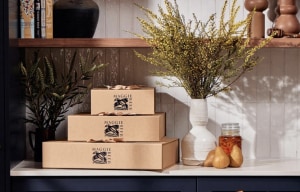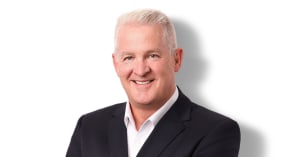Nextek founder and acclaimed innovator behind NextLooPP, Prof Ed Kosior gave his views on the future of plastics at SPE's Plastics and the Circular Economy virtual conference this week.
Extracting more recyclables from the waste stream, the relevant ratios of recycled content, and the merits of chemical recycling were key topics covered by Kosior as he made his message clear: a focus on CO2 should drive all future decisions related to plastics and recycling.
Speaking at the Australian-New Zealand Chapter of the Society of Plastics Engineers (SPE) event – 'Plastics and the Circular Economy - The Virtual Edition 2021', Kosior opened his session by outlining the importance of cutting greenhouse gas emission levels and annual flows of plastic into the oceans, and emphasised future challenges faced as oil companies focus on creating more plastic as demand for oil-based fuel wanes.
Citing a study conducted by the Pew Foundation Trust, which looked at all the interventions that we can undertake in order to change things, he outlined suggestions for positive action.
"We have to reduce the growth in plastics production. And this might sound like heresy to lots of people. But this change is coming. So we need to think about where governments are taking us... and we need to start thinking about how we're going to get there because we've got ourselves into a mess [that] we have to work our way out of," said Kosior, providing a map toward a new scenario.
Firstly, he pointed out that big CO2 savings would result from an increase in recyclables, highlighting the need for countries to stop exporting plastics (an initiative that Australia will be introducing next year) and stop burning them (which he said is prevalent in Europe) which would reduce CO2 emissions significantly.
He went on to discuss energy from waste, new materials from waste, and the importance of the right mentality and design for recycling.
"Many packages are poorly designed and have never been designed for recycling – and Australia is a great case in point," said Kosior. "If you go around the world, at least 25 per cent of the packaging put on the market is not really well designed for recycling."
Moving on to food grade recycling, Kosior said it is a complex area but quite critical since the majority of plastic packaging is used for food contact applications.
On the subject of collecting and sorting, he suggested that it was adequate to collect up to 60 per cent of items that are put on the market as there are current limitations on the sorting and recycling efficiencies of the collection processes.
He said that material recovery from both recycling and waste streams could result in potential savings of 2.76 billion tons of CO2 emissions, something that Australia has yet to do and that certain countries, such as Taiwan and Netherlands, have done, achieving a zero waste economy.
Kosior's second key subject in the session honed in on the relevance of recycled content ratios.
"When we make a recycled plastic, we get back an average of what we put onto the market. Although you can’t detail the properties of a recycled material, you can average them out," he said.
Kosior went on to explain that recycled HDPE and recycled PP have a 25 per cent lower carbon footprint than recycled PET, and when comparing recycled content, a 30 per cent recycled PP or high density plastic has the same carbon footprint as 73 per cent recycled PET.

"So, if we were to compare unambiguously what polymers we should be looking at, we should be looking at recycling more HDPE and PP than PET. Now, there are all sorts of questions and limitations, but switching to PET is not necessarily a simple matter when it comes to [reducing the] carbon footprint," he said, before moving on to discuss sorting, which he believes is key to better markets for recycled plastics.
He said that there is a big focus on digital markers, spectroscopic and digital sorting, and suggested that these technologies should be combined into a system that tackles the sorting issue which can also facilitate the kind of retailer interface the brand owners want.
He touched on the subject of fluorescent markers, emphasising the simplicity of the system, as it only requires the addition of one layer of ink on the label to enable it to become fluorescent.
"This is how we can boost the suitability of recycling of materials into food and non food applications," he said, explaining that ultraviolet light illuminates and becomes fluorescent in a single step, providing over 99.3 per cent purity, and over 99 per cent separation in the second pass.

Kosior's final key subject in the session addressed the merits of chemical recycling, with emphasis on the fact that it is not the key method to address the end-of-life plastics but instead, is complementary to mechanical recycling, particularly for difficult-to-recycle plastics, such as film.
In closing, he said that since we have the technology to put a helicopter on Mars, it should not be that difficult to create a circular destiny for plastic items.
Professor Kosior’s expertise in the plastics recycling sector spans 47 years, split between 23 years as an academic and 24 years working in the recycling industry. He has been instrumental in designing numerous modern recycling plants and has achieved a number of patented recycling breakthroughs.
In 2004, Professor Kosior founded Nextek Ltd to provide consultant services and foster the development of strategic approaches to sustainable packaging, waste reduction, minimal life cycle impact, circular economies.
More recently, he has developed NextLooPP, an award-winning multi-client project with the purpose of creating circular food-grade recycled polypropylene from post-consumer packaging.
He is involved with many industry associations, universities, and research organisations and is Fellow of the Society of Plastics Engineering and Fellow of the Institute of Materials, which awarded him the Prince Philip Medal for “Polymers in the Service of Man” in 2019.





